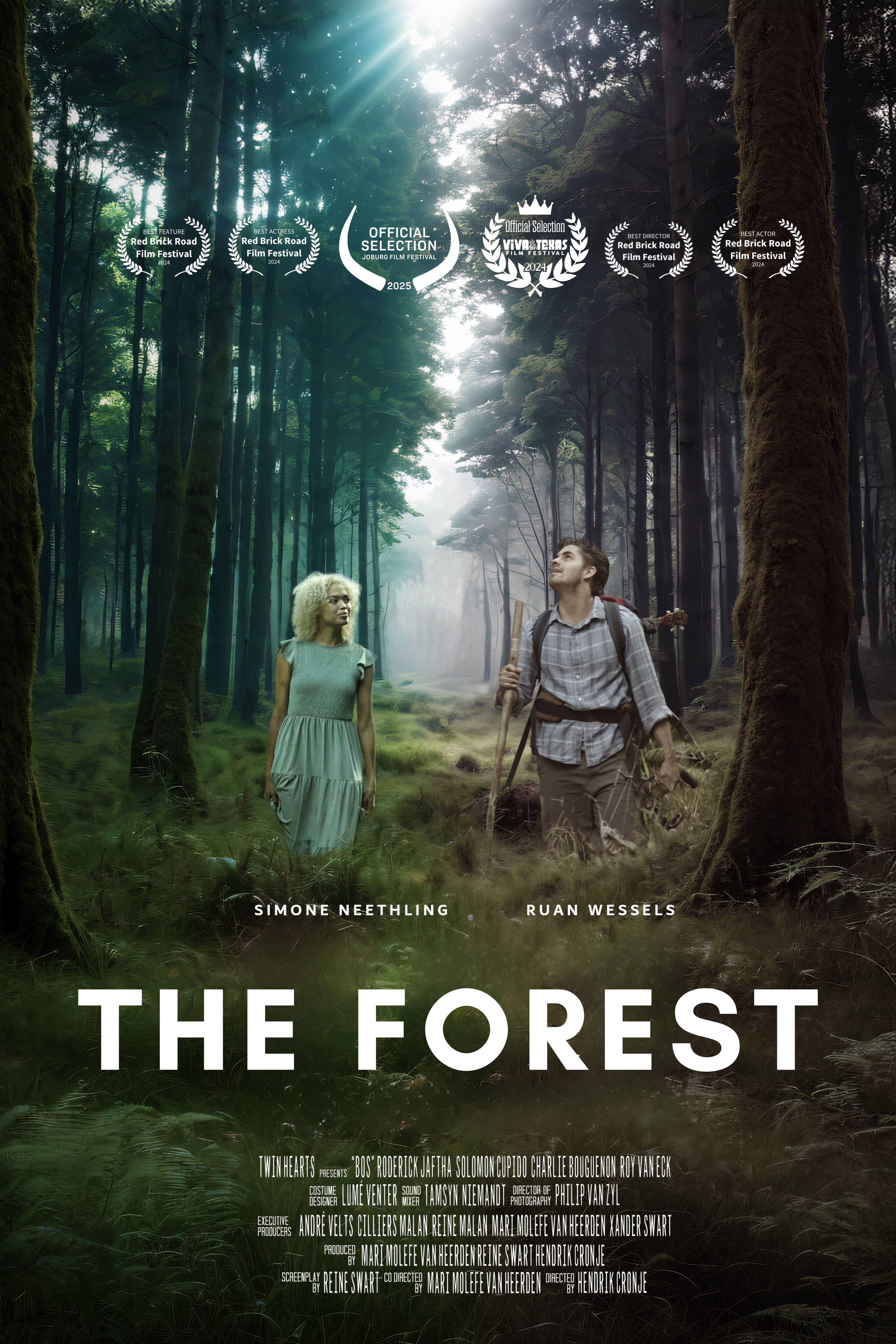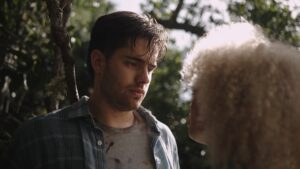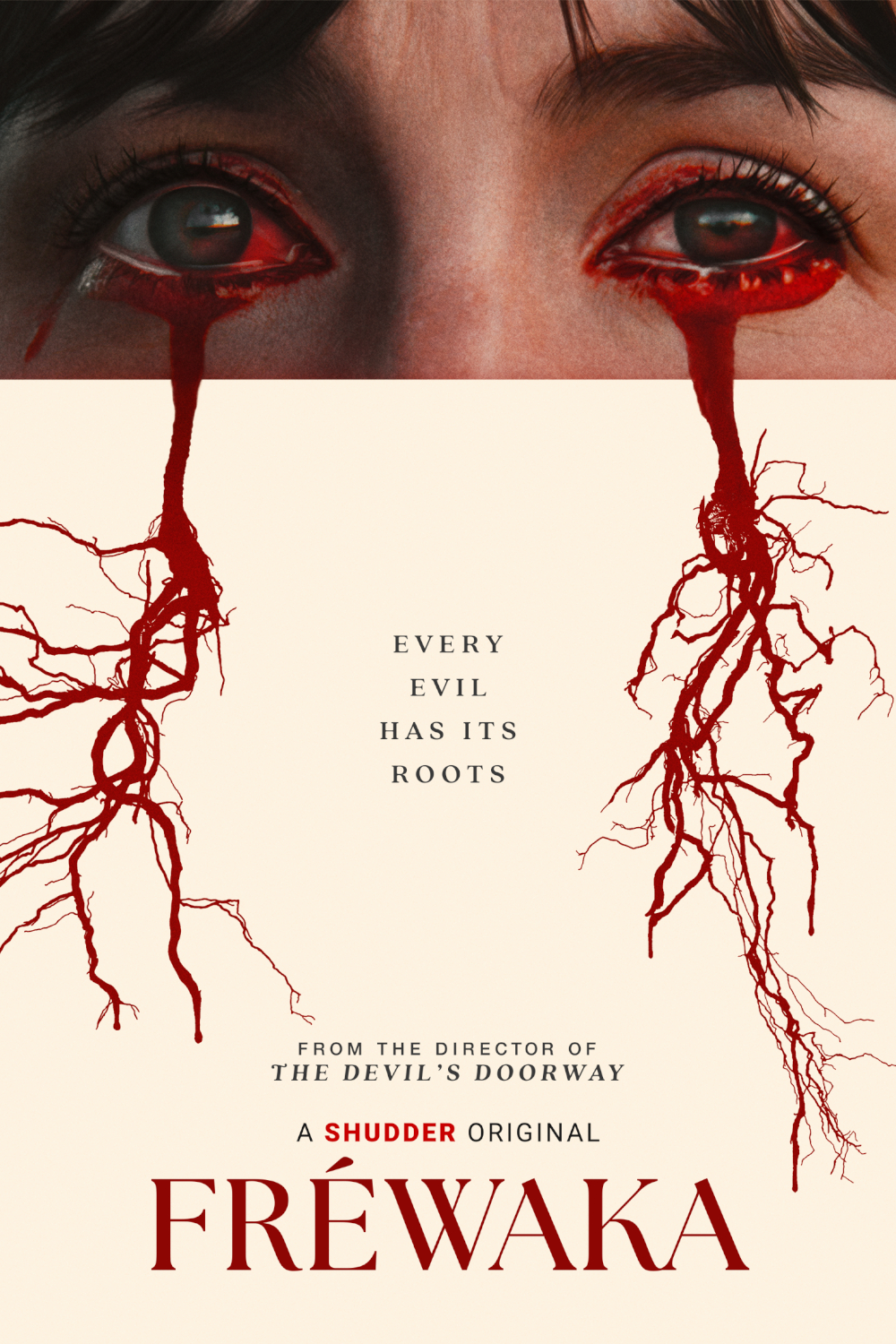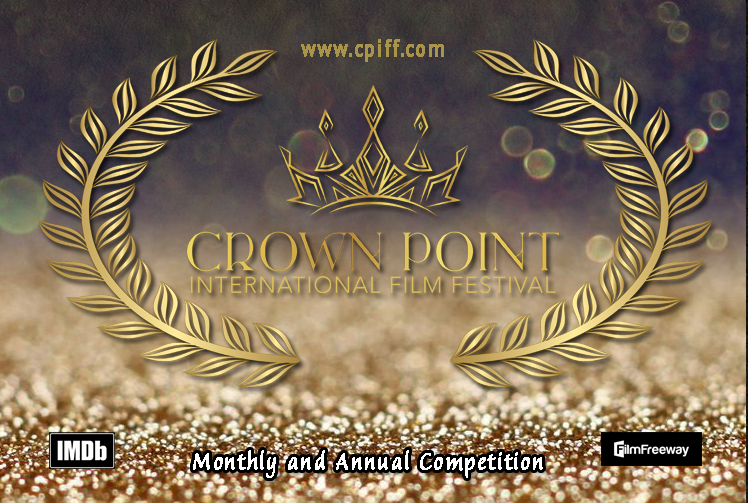
Indie Film Review “The Forest (BOS)”
WATCH THE TRAILER BELOW
First, the Recap:
The aftermath of oblivion. Not exactly what any of us, I hope, remotely wish to entertain the notion of, especially in the context of our lives on this amazing planet we call home. The mere concept of things as we know them being completely eradicated, leaving only desolation and emptiness around us, should be mortifying to our minds. Yet, were we ever to actually find ourselves in this position, how would be cope if all we knew was no longer present, with loneliness and just surviving is all that remains?
Heinrich (Ruan Wessels) believes he’s alone in the world. In the wake of a global nuclear conflict over 4+ years prior, cities and, to his knowledge, humanity has fallen to complete extinction, with nature now being the dominate force that’s rebounded. Utilizing this for his very existence, Heinrich has accepted his position amongst this new reality until an unanticipated encounter with a mute young woman, Em (Simone Neethling), radically alters everything he’s believed was true of the Earth plus what is possible when a secret about her is revealed he soon swears to protect.
Next, my Mind:
When you consider the terms “post-apocalyptic” and/or “dystopian”, it tends to conjure imagery of worlds ranging from “Mad Max”, to “Divergent”, to “The Hunger Games”, to “The Last of Us”, et al. Actualities permeated by zombies, mutant raiders, manipulative governments, or beaten down masses of people who must rise up to recapture what’s theirs. While this is perfectly fine and provides PLENTY of film material to dive into, leave it once more to the independent film arena to discover the means to take those aforementioned terms and create something that, at least for this critic, was utterly refreshing, invigorating, entertaining, and the last thing, in a certain context here, I would have ever anticipated to feel–stirringly heartened. That is what emerges via the new 78-minute feature film from director/producer Hendrik Cronje, director/producer/executive producer Mari Molefe van Heerden, writer/producer/editor Reine Swart, plus executive producers Cilliers Malan, Reine Malan, Xander Swart, and André Velts.
In what I see as a uniquely artistic amalgamation of post-apocalyptic/dystopian concepts getting intermixed with beautifully uncomplicated, affecting dramatic depth, heartwarming romance, and subtle yet profound fantastical elements, it all gets topped off with a wholly unpretentious environmental statement as well, ultimately manifesting into a sweeping story that belies its indie roots. The narrative that follows a young man who thinks he’s all that’s left of people in the world finding out otherwise in overtly revelatory, tenderly charming, and harshly dangerous circumstances is very appropriately paced, with an initial sparseness of dialogue that ushers the viewer into this enigmatic serenity with visuals alone through the first encounters the lead character experiences with Em before then launching into the more intensely chaotic angles and explorations that adeptly and compellingly highlight human nature at its best and worst. I love that there’s an intentional dichotomy between the ideas of what it IS to embrace connection with others that sends a message to our own currently tumultuous world quite emphatically.
Additionally, I also laud how the film’s design allows for us to sit back and find the means to appreciate the beauty of nature that so often IS mistreated, or simply ignored, by us as a whole. The cinematography’s ability to bring such a sense of rediscovered acknowledgment and subsequent responsiveness FOR natural wonders, even in their most simplistic forms, much less how it then provides the foundational platform for radical power to both harm and heal. The sheer portrait of innocence regained as well is paramount here thanks to the fundamental essence of guarded playfulness that blooms between Heinrich and Em at first, followed by wholehearted trust, growing into such an unavoidably endearing attraction that hits you right where it should. But, the film doesn’t shy away from also focusing on the, sadly, uglier side of our humaneness as well, effectively showcasing forced obedience and selfish ambition (even when birthed from GOOD intentions), all in the name of survival, but yet not completely centered on the wellbeing of ALL involved.
A willingness to address BOTH sides of the figurative coin is what gives the narrative even deeper meaning, at least in this critic’s opinion, and therefore engenders a more grounded, realistic foray into “good vs. evil” principals with a twist as the film’s third act arrives, giving us a finale that is deeply impactful that elicits a multitude of emotional responses within you as you watch. I think, perhaps, it’s the fact that there are redemptive tangents underscoring it all, illustrating that changes of heart, mind, and actions CAN happen within even the seemingly hardest of people, or at least those who just required that “push” in the right direction to finally SEE it. The long and short of it is that this was actually a surprising film for me, given its cross-genre leanings, and the skill in which it was written and directed so as to NOT make this into what we might normally equate WITH a post-apocalyptic effort is admirable, welcomed, and a necessary breath of fresh air to the filmgoing world.
Wessels’ credibility and appeal here manifests firstly, for me, thanks to an always acceptable and gratifying “everyman” quality plus quietly emotive delivery that not only befits the narrative itself, but lends that ever-desired relatability to the proceedings that brings about an unwavering support for him in his performance as Heinrich, a supposed last man standing after the horrors of a global nuclear war has all but destroyed people. Taking what he had learned from a beloved relative prior to everything going sideways, Heinrich wanders through the now-rejuvenated forests, surviving, journaling, and recalling that which was lost. But, when his entire reality gets seriously upended upon meeting a young woman named Em, what transpires between them and the consequent truth that there are other people in the world who may not share the pair’s benign natures and blossoming love, persuades Heinrich to make the decisions he must to ensure he and Em will be safe, especially when a huge secret she keeps comes to light. It’s that excellent “normalcy” of Heinrich’s character that Wessels brings out so perfectly throughout the entire film.
I will now DARE anyone NOT to utterly fall in love themselves with Neethling here, as she embodies such a magnificent weaving together of innocence, vulnerability, strongly present independence, and understandable caution around men especially through her role as Em, a delightfully flighty young woman who has been tracking Henrich. Once he realizes she’s around, Em’s total air of wariness reigns until they finally find initial common ground that initiates what becomes an adorably captivating, slowly emerging romance. Their now shared lives seem almost ideal until shades of Em’s real plight in the form of a group of unscrupulous men come calling. As Em reveals a jarring actuality about herself, her reliance on and steadfast belief in Heinrich only turns more potent, and she soon will try to do anything she can to protect HIM, even as she herself faces the danger of the duo’s captors. Watching this relationship come to life between Em and Heinrich, plus the torments they must endure, is so engaging thanks to Neethling’s body language and facial expressions that carry her performance with such irresistibly enchanting and energetic poise.
Also, Wessels and Neethling simply have the exact kind of believable chemistry that’s requisite here, and that makes their bond even more substantial. Primary supporting turns are made first by Roderick Jaftha as Samuel, the leader of a ragtag group of former criminals who not only insert themselves into Heinrich and Em’s lives, but have an agenda behind why it is so imperative they keep Em for themselves. Jaftha creates a character we love to hate, but there’s also a turn in his story that was very, very dynamic. Charlie Bouguenon and Solomon Cupido play Dan and Koos, the former a drug dealer in pre-war times and the latter a soldier-turned-embittered mercenary who act as Samuel’s henchmen but who also have their own differences and demons between them that could come back to haunt events as they unfold and they try to likewise keep Em contained. Roy van Eck arrives as Mark, the nefarious group’s impaired but capable giant of a man who seems more slave labor than valued part of the crew. His journey becomes very interesting as the film proceeds, and van Eck certainly portrays both sides of humanness distinctly and earnestly.
Again, it’s a mix of characters who you love to hate, but then MIGHT end up redeemable–or not? Well portrayed by all the actors who make the characters precisely what they’re meant to be. Finally, co-director/producer/executive producer Mari Molefe van Heerden appears as Nicole, but I cannot say much more as it is a key factor her character plays that is part of greater disclosure for another character. So, in total, “The Forest (BOS)” rises proudly with definitive purpose on its well-crafted wings, providing a deftly presented kaleidoscope of genre-bending content, persuasive messaging, and such a proficiently acute study of exhilarating adoration, basic human connection, the trials we must overcome, and the necessary existence of what is consistently needed more and more in this world–HOPE and the renewal of all things–even if it must go through the fire and spring from the ashes.
STAR RATING (out of 5):
As always, this is all for your consideration and comment. Until next time, thank you for reading!





